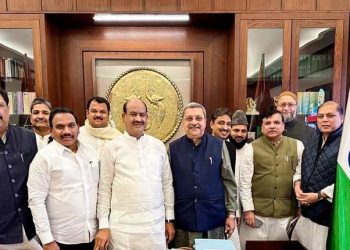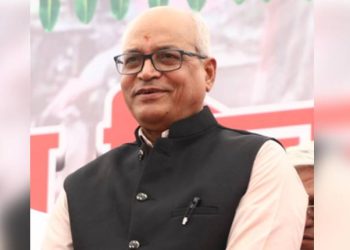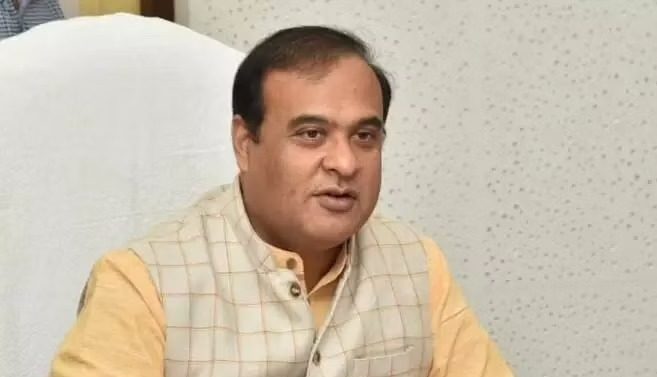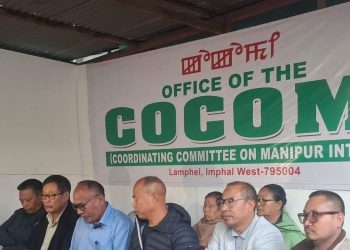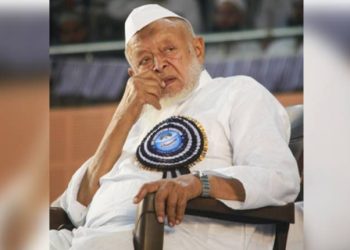New Delhi: Law Minister Kiren Rijiju has said the Central government will take steps after due consultation for major electoral reforms which are required as per the new changing time and situation.
The development comes after the Election Commission noted that the declarations provided by the political parties about the financial ramifications of poll promises are quite routine and ambiguous. The poll panel proposed to mandate the political parties to provide authentic information to the voters to assess the financial viability of their election promises.
The Law minister’s office tweeted earlier in the day in connection with the electoral reforms. “The Centre will take steps after due consultation for major electoral reforms which are required as per the new changing time and situation,” said the tweet, quoting the minister.
The poll panel has proposed to supplement the existing Model Code of Conduct (MCC) guidelines and mandate political parties to inform voters about financial ramifications of their promises in the manifesto against well-defined quantifiable parameters.
The existing guidelines under the MCC require the political parties and candidates to explain the rationale for promises made therein as well as the possible ways and means to finance such promises. According to the poll panel, the declarations are quite routine, ambiguous and do not provide adequate information to the voters to exercise informed choice in an election.
The EC in its meeting led by Chief Election Commissioner (CEC) Rajiv Kumar and attended by Election Commissioner Anup Chandra Pandey decided that it cannot remain a mute spectator and overlook the undesirable impact of some of the promises and offers, on the conduct of free and fair elections and maintaining level playing field for all political parties and candidates.
However, in August this year, the Election Commission told the Supreme Court that being a constitutional body, it should be kept away from the panel of experts — representing a wide spectrum of governmental and non-governmental bodies — proposed to deliberate on the issues with the validity of freebies announced by the political parties to induce voters during polls. In a previous hearing in the matter, the top court had orally expressed its discontent with the EC for not taking stand on the menace of freebies offered by the political parties.
The EC, in an affidavit, said: “It may not be appropriate for the commission being the constitutional authority, to offer to be part of the expert committee especially if there are ministries or government bodies in the expert body.”
However, it welcomed the setting up of an expert body, having representation from a wide spectrum of the governmental and non-governmental bodies; concerned regulatory, planning, policy research institutions; political parties; domain experts crisscrossing relevant socio-economic sectors — agriculture, finance, banking, social justice environment. etc.
The EC said, “There are continuous elections in the country and any opinion/view/comment during deliberations in a multi-member body might, in the event of being publicised, amount to pre-decide the issue and disturb the level playing field.”
The EC further added that it will be greatly benefitted by the recommendations of the expert body, which the top court may deem appropriate to set up and also committed to give the highest consideration to the same, while strengthening/ modifying its existing guidelines in the interest of purity of electoral process. The EC filed its response on a PIL by advocate Ashwini Kumar Upadhyay to regulate freebies.
(IANS)



